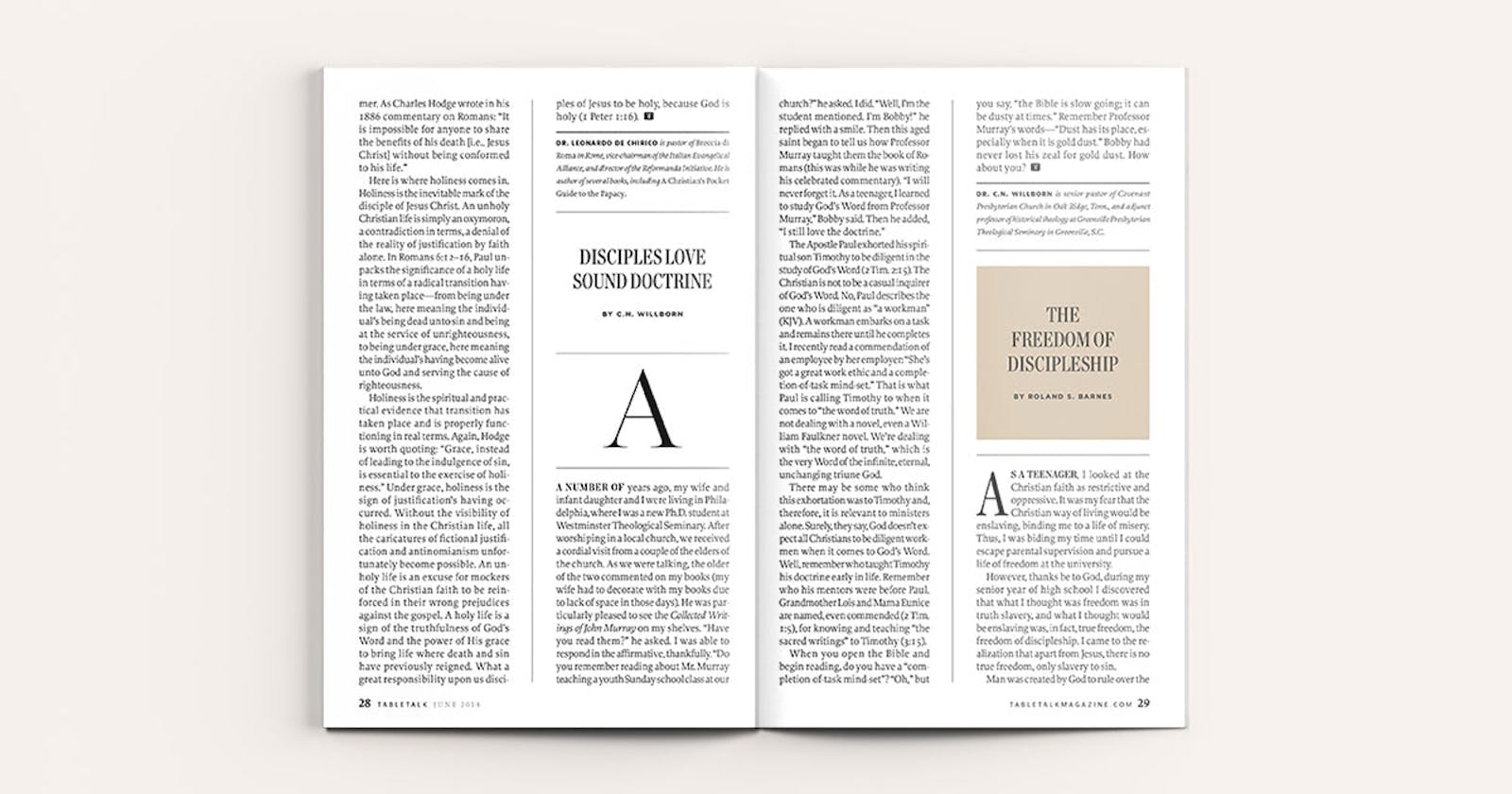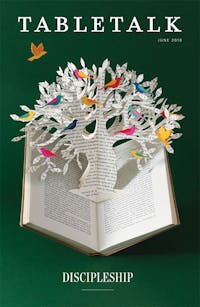
Request your free, three-month trial to Tabletalk magazine. You’ll receive the print issue monthly and gain immediate digital access to decades of archives. This trial is risk-free. No credit card required.
Try Tabletalk NowAlready receive Tabletalk magazine every month?
Verify your email address to gain unlimited access.
A number of years ago, my wife and infant daughter and I were living in Philadelphia, where I was a new Ph.D. student at Westminster Theological Seminary. After worshiping in a local church, we received a cordial visit from a couple of the elders of the church. As we were talking, the older of the two commented on my books (my wife had to decorate with my books due to lack of space in those days). He was particularly pleased to see the Collected Writings of John Murray on my shelves. “Have you read them?” he asked. I was able to respond in the affirmative, thankfully. “Do you remember reading about Mr. Murray teaching a youth Sunday school class at our church?” he asked. I did. “Well, I’m the student mentioned. I’m Bobby!” he replied with a smile. Then this aged saint began to tell us how Professor Murray taught them the book of Romans (this was while he was writing his celebrated commentary). “I will never forget it. As a teenager, I learned to study God’s Word from Professor Murray,” Bobby said. Then he added, “I still love the doctrine.”
The Apostle Paul exhorted his spiritual son Timothy to be diligent in the study of God’s Word (2 Tim. 2:15). The Christian is not to be a casual inquirer of God’s Word. No, Paul describes the one who is diligent as “a workman” (KJV). A workman embarks on a task and remains there until he completes it. I recently read a commendation of an employee by her employer: “She’s got a great work ethic and a completion-of-task mind-set.” That is what Paul is calling Timothy to when it comes to “the word of truth.” We are not dealing with a novel, even a William Faulkner novel. We’re dealing with “the word of truth,” which is the very Word of the infinite, eternal, unchanging triune God.

There may be some who think this exhortation was to Timothy and, therefore, it is relevant to ministers alone. Surely, they say, God doesn’t expect all Christians to be diligent workmen when it comes to God’s Word. Well, remember who taught Timothy his doctrine early in life. Remember who his mentors were before Paul. Grandmother Lois and Mama Eunice are named, even commended (2 Tim. 1:5), for knowing and teaching “the sacred writings” to Timothy (3:15).
When you open the Bible and begin reading, do you have a “completion-of-task mind-set”? “Oh,” but you say, “the Bible is slow going; it can be dusty at times.” Remember Professor Murray’s words—“Dust has its place, especially when it is gold dust.” Bobby had never lost his zeal for gold dust. How about you?
